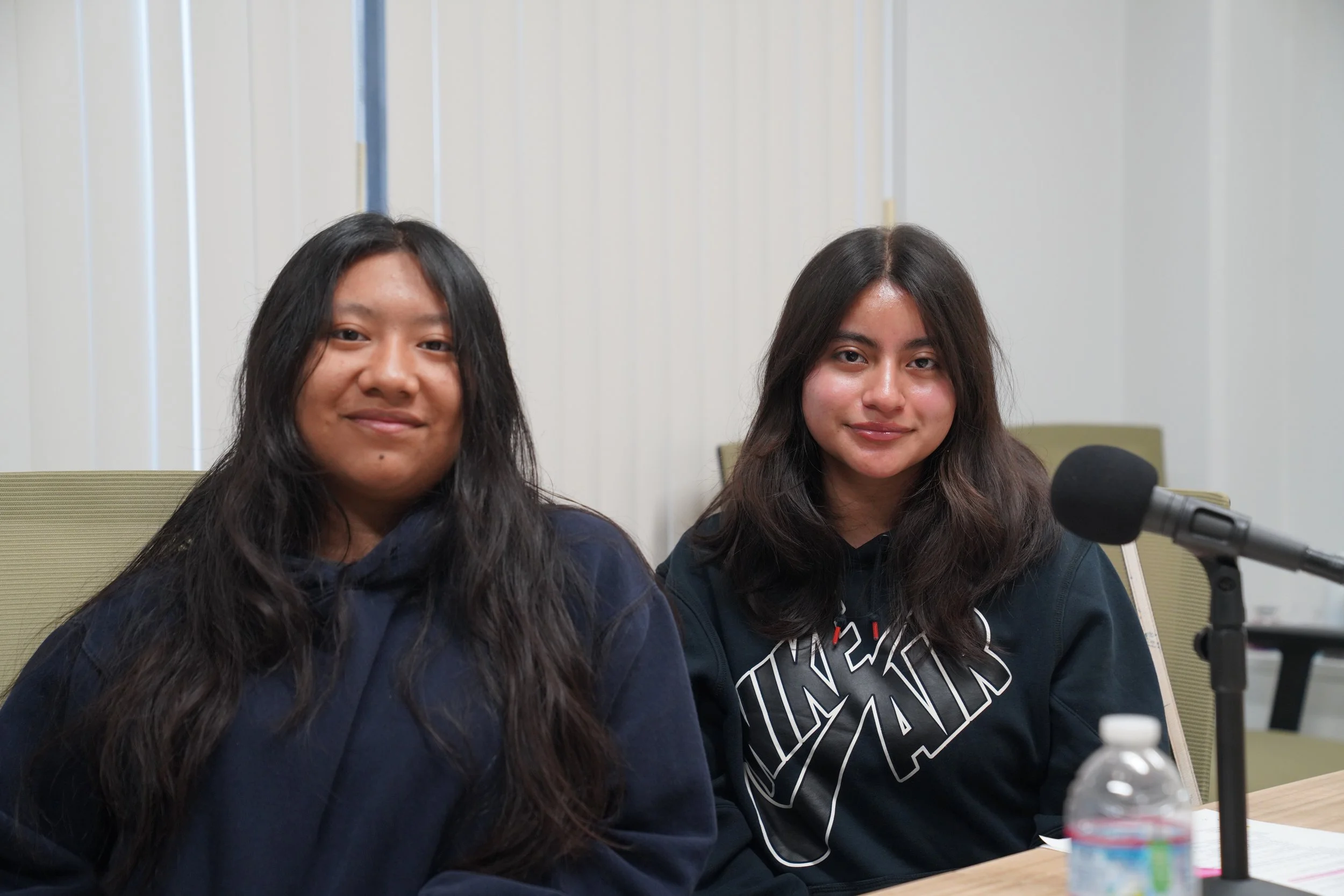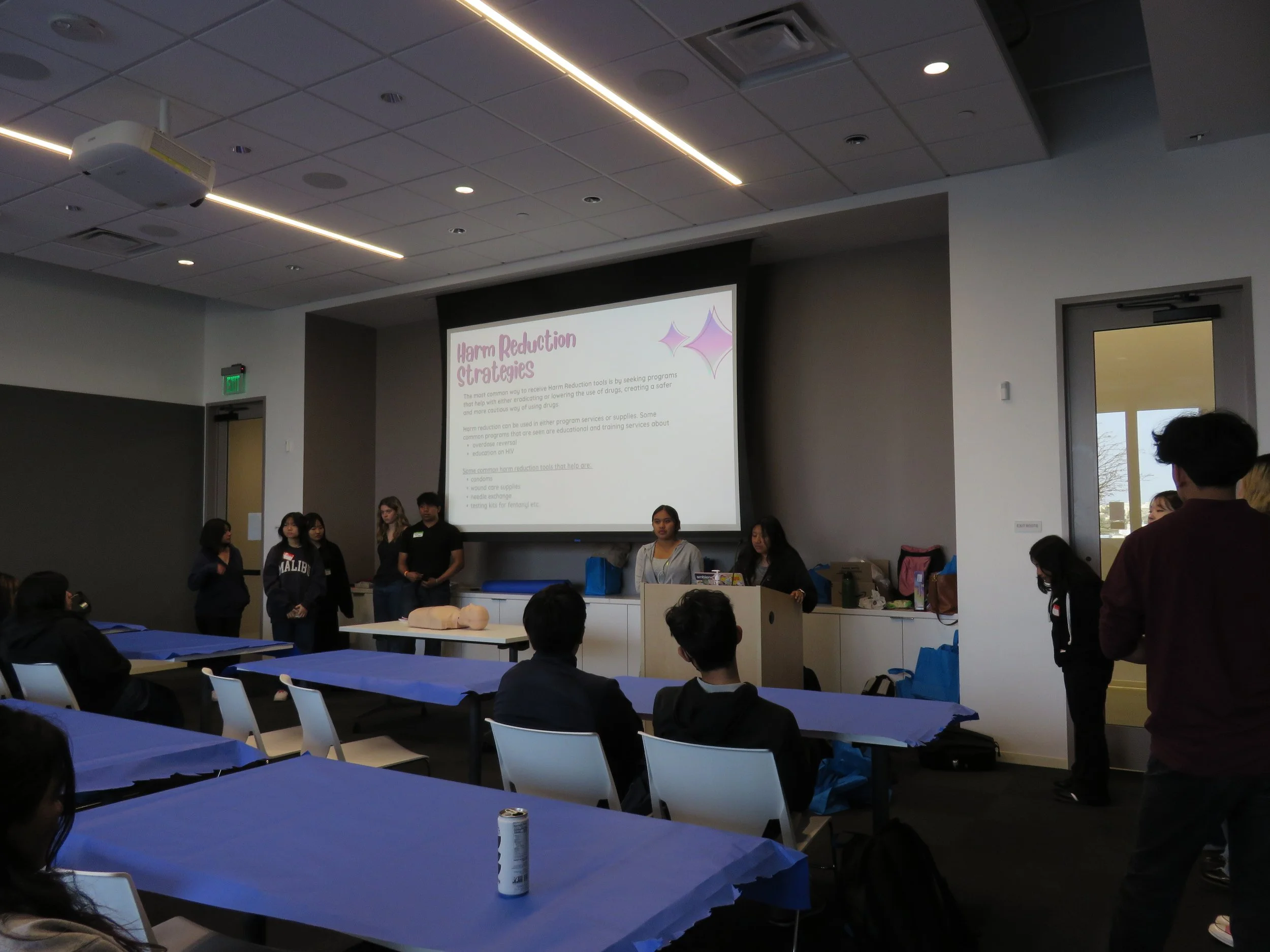Johana Martinez
Johana grew up in Los Angeles and is a senior at Camino Nuevo Charter Academy. She is passionate about finding community-based solutions to Los Angeles’ problems and spreading awareness. Johana is interested in pursuing business and psychology in college. When she’s not playing volleyball, you can find her reading, listening to music, or painting.
It Can Affect Everyone
Interview by Ulices Renoj
Can you start with your name and how old you are?
My name is Johana, and I am 17.
Where is your hometown?
My hometown is in Los Angeles.
Do you work in Los Angeles, or do you do anything special there?
I sometimes volunteer to help out the community.
What are your thoughts on Los Angeles?
Well, it’s a beautiful city with some dark parts. Many people think it’s a beautiful city, but when you have lived there and experienced everything, you can tell it’s not as good as people hype it up to be.
Who’s your favorite person to hang out with when going out to eat? How long have you been friends with them?
Besides my family, I hang out with my friend Nicolle, who is also in KORYO. We became friends back in high school. Sometimes, it feels surprising that we’ve been friends for only two to three years. It feels like we’ve known each other for so long.
Why did you join KORYO?
I joined KORYO because I liked what it was fighting for. [I wanted to] spread awareness about opioids, one of the problems Los Angeles faces. [There are] a lot of homeless people here, and sometimes those homeless people fall into drugs and then end up [using] them every day. I’d like to bring awareness to the community.
What have you learned in KORYO about opioids or stimulants?
I’ve learned that many people don’t know about it, and not everyone needs to be in a low place [to start using drugs]. They might begin taking stimulants or opioids that the doctors prescribe to them, or some people fall into it under peer pressure. Those who experience it come in different shapes and sizes.
Do you know anyone who is using opioids or stimulants?
No, no. Fortunately, I do not.
How is it going for you in the program? Are you enjoying it?
I’ve been enjoying my experience. I wished I could come earlier for the first few weeks, but I couldn’t because I had volleyball practice. Besides that, I’ve enjoyed it. Everyone has been so nice and respectful about what we are learning.
On the first day of the program, how did you feel?
I did feel a little bit unprepared, like I didn’t know what would happen. But as I said, I have Nicole in the group, so I feel more comfortable that she came.
If you need help in the program, would the staff members or even your peers help you out?
Yes, I firmly believe that everyone in the group would help each other out respectfully.
If you could continue this program next year, would you like to do it again?
I wouldn’t mind doing it again. Especially if it’s about the same thing and has people who’ve already taken the course and know what they’re talking about to bring more insight.
This program is long. Do you feel it was worth it?
I feel like the time was worth it because we can’t just rush the session when we’re talking about drugs and [drug misuse] so quickly. It makes sense that we want more time, especially because of the whole stigma around it and knowing what to do when approached. There are just so many things to know about opioids and stimulants that we need to take a long course about them, so 10 months sounds perfectly reasonable.
How are you going to use what you learned in KORYO?
Raise awareness. It may be difficult, but I want to bring awareness and help people know they’re not alone. I would like to help people, especially because they might not know about KORYO. We could guide them to the group and let them know about many programs to help them. They might be struggling alone, and no one deserves to be going through that.
Who would you recommend this program to?
I recommend it to students who need to learn or want a program [on this topic]. As well as to schools, to make it a class that people should take because a lot of high schoolers are dealing with opioid and stimulant use. It is especially important for teenagers because they’re learning and growing. I recommend this group to a lot of people.
How do you feel about the interviewing we do as a part of this program? How does it make you feel?
It’s awkward. But it is something that we all have to go through. To help make it less awkward, you can make small talk or try to get to know the person first and not dive into the conversation immediately. Make them feel they have time to think, not just ask question after question. Especially when we are talking to people who have used opioids or stimulants or don’t feel comfortable, it’d be easy to make them feel as if they’re in control of the interview, and they have the choice to make it go fast or slow.
Do you currently have any interests or hobbies?
I’m currently in the girls’ volleyball club; it’s not a hobby but an interest. I’ve been doing it since the end of the last school year. I originally went because my friend wanted to be one of the managers. They brought up that I should join or try to be in it, and I said, “Why not?” I’ve been interested in it [for a while], and it’s enjoyable. At first, I didn’t think I would get into it, but I was able to get on the team, and I'm thankful that I’m [part of] it.
Besides volleyball, do you have any other interests?
I like painting and drawing, but it’s not something I actively pursue. I’ve always liked art since elementary school, and I haven’t been into it as much as before. But I remember I was always trying to improve it by going to art classes and signing up for art programs. I haven’t been [practicing] recently, but I do try to every once in a while.
Besides that, I try to get myself more interested in stuff. I’m always trying to do service hours to help improve the community. I’ve worked with KYCC before to help clean the streets of Koreatown so that they are cleaner and livable.
What is one thing you have painted or drawn that is important to you?
Last year, in my junior year, I took art. We were making specific artworks and paintings. Once, they made us paint ourselves, and I enjoyed it. I liked how creative it was and how we got to paint it ourselves.
What are any careers or majors that you want to pursue?
Mainly, I’ve been trying to get into business and psychology because, knowing and living in L.A., there are a bunch of homeless people, and it’s sad to see that anyone could fall into homelessness. It doesn’t just affect [certain people]; it can affect everyone. I thought of [majoring in] business to help make a program for the community. [I’ve also considered] psychology because many people go through specific traumas and events that they need help unpacking.
Did anyone or anything inspire you to do this?
It’s just that everyone who lives in L.A., or most people here, end up seeing homeless people. And it’s so sad to see that, especially with many people avoiding them or trying to avoid eye contact — avoiding them like they’re the plague. Still, they’re just regular human beings who deserve another chance.
Is there anything you like to do during your free time?
Besides practicing volleyball, I sometimes like to read books I’ve heard about, watch TV shows, or listen to music and tune everything out — just focus on that.
What sentimental object did you bring today?
The sentimental object I brought today is a bracelet my mom got me from Mexico. It has blue, yellow, red, black, and clear beads. It’s so pretty. It’s [special] because we had originally planned to go to Mexico — my parents and I — but I couldn’t make it because I still had school. My mom bought me the bracelet and something else, which became sentimental because it meant that she thought about me during the trip. I always carry it with me unless I feel like I might break or chip it, then I take it off.
What is one of your favorite books?
A book I liked was “Flowers for Algernon.” It’s about this whole experiment where they made a mouse’s IQ higher and wanted to do it on a human to see what would happen. So they chose a man and injected him. His IQ was very low; he didn’t understand much, so he just signed up for it.
We see him going into these events and [becoming] smarter. There was one part that got to me: when he didn’t really understand much, and where he worked, they’d always say, “Stop pulling a Charlie,” which was the man’s name. At first, he thought it was funny because it had his name in it, but once his IQ grew, he understood that they were making fun of him. He would write in these journals, and once he wrote that no one wanted to talk to him at work anymore because they were now afraid of and intimidated by him. After all, he was smarter than they were.
Later on in the book, [the author] reveals that the thing they injected him with doesn’t work forever; it’s only temporary because they saw it on the mouse named Algernon. The mouse ended up dying, but they didn’t tell the man. I think he eventually found out because it started happening to him, and we see in his journals [that he is] writing how he doesn’t understand why he’s not as advanced as he used to be. There was one part where he wrote, ‘I don’t even understand who this person is. I feel disconnected because I don’t remember writing any of this and don’t understand the words.’
In the end, the mouse dies, Charlie goes back to normal, and he writes, ‘I’ll miss you, Algernon. Rest in peace. I’ll send these flowers to you,’ or something like that. It was touching because it’s a problem that many people go through — feeling not as smart and trying to do anything. Also, regarding people with disabilities and people who make fun of them, the book really [touches on] a lot of problems.




